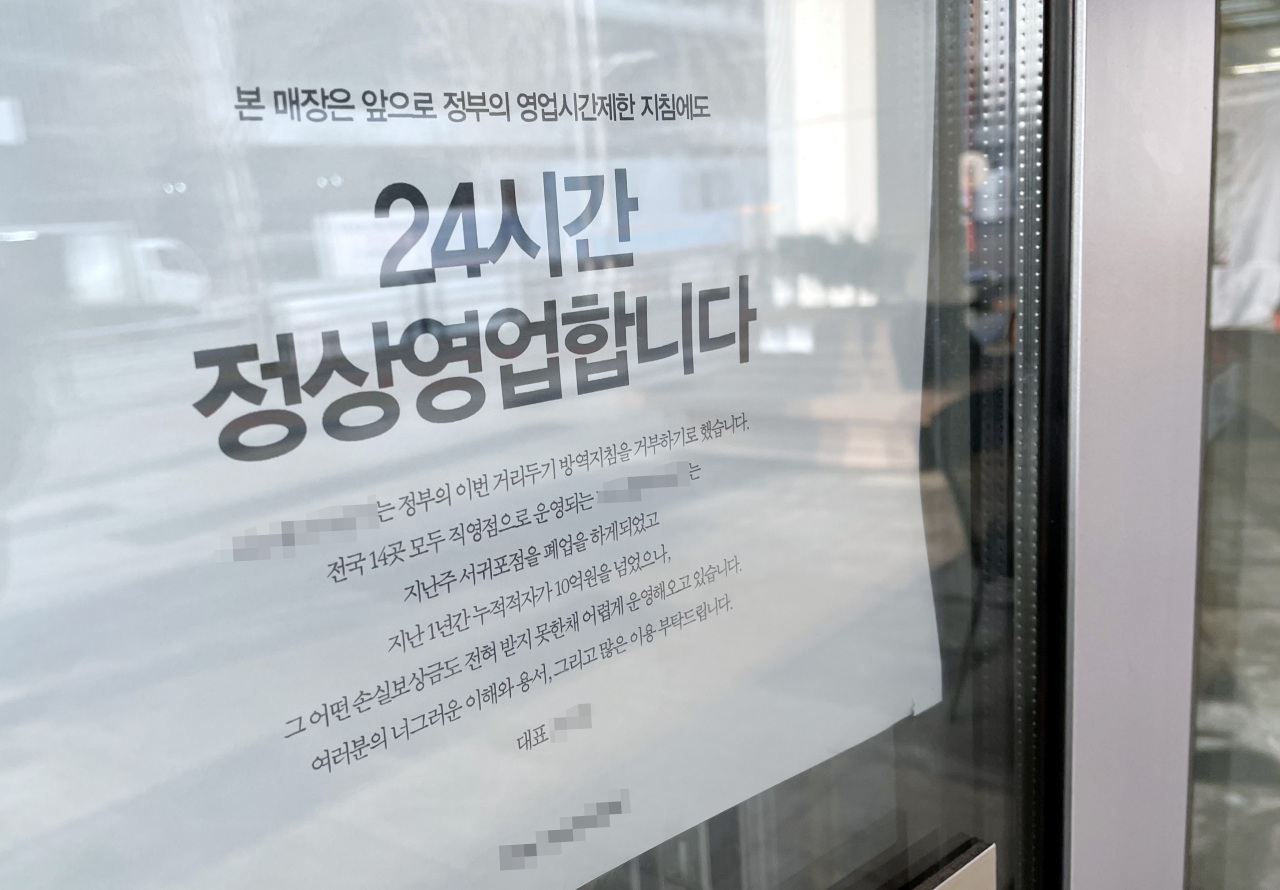 |
A notice is placed in front of a cafe in Incheon, Tuesday, announcing plans to remain open 24 hours in defiance of government-mandated COVID-19 business curfews. (Yonhap) |
South Korea’s tightened vaccine pass regime has spawned fierce backlash from individuals remaining unvaccinated, with some attempting to get around the rules with fake certificates.
On neighborhood-based secondhand marketplace Carrot Market, a now-deleted posting offered to pay 50,000 won ($42) to fully vaccinated people lending their Naver ID and password earlier this week.
Naver, the country’s No. 1 web portal, is linked to the government’s vaccination record system, and provides a QR-coded vaccine pass to vaccinated users.
Since Dec. 13, all South Korean adults must present a proof of vaccination or a recent negative COVID-19 test result before entering restaurants, cafes, movie theaters, concert halls, indoor sports venues, PC rooms, libraries and museums. The government currently offers a QR certificate via its smartphone application COOV, which is linked to other popular services like Naver and KakaoTalk.
Local media reported on cases in which some unvaccinated people shared text messages confirming negative PCR test results to unrightfully access restricted places.
Under the current Infectious Disease Control and Prevention Act, using someone else’s vaccination certificate is subject to a fine of up to 100,000 won. Forgery can result in a much heavier punishment of up to 10 years in prison.
Some business owners have also shown discontent at the extended rules over their impact on business, as well as the technical difficulty in verifying customers’ vaccine status.
A cafe owner in Incheon has chosen not to follow the government-imposed business hour limits, saying it is for survival. From Saturday, the government restored a 9 p.m. curfew on restaurants and bars in order to combat the virus resurgence.
“The store will be open 24/7 regardless of the state-mandated business curfews. It is more urgent (for me) to pay salary to staff than the fines for violating business restrictions,” the owner said in a popular online community of small business owners.
Opinions are split in online communities over growing attempts to challenge and avert the government’s vaccine pass and social distancing rules.
Some say such actions put the public at a higher risk of virus transmission, while others call for the right to refuse COVID-19 vaccination, considering reports on claims of side effects from the vaccines. As for businesses hit by tightened virus curb rules, some have blamed the government for not implementing sufficient measures to compensate small merchants for the losses.
“As for the Incheon cafe, if it sticks to the 24-hour business plan, the Incheon Metropolitan Government could issue an administrative order to suspend its operations under the current regulations. Small business owners like the cafe owner have been frustrated with the prolonged COVID-19 pandemic and subsequent antivirus measures. The government should have taken more time to consult with them and put forward reasonable compensation measures before making policy decisions,“ attorney Yang Hong-seok told The Korea Herald.
By Choi Jae-hee (
cjh@heraldcorp.com)








